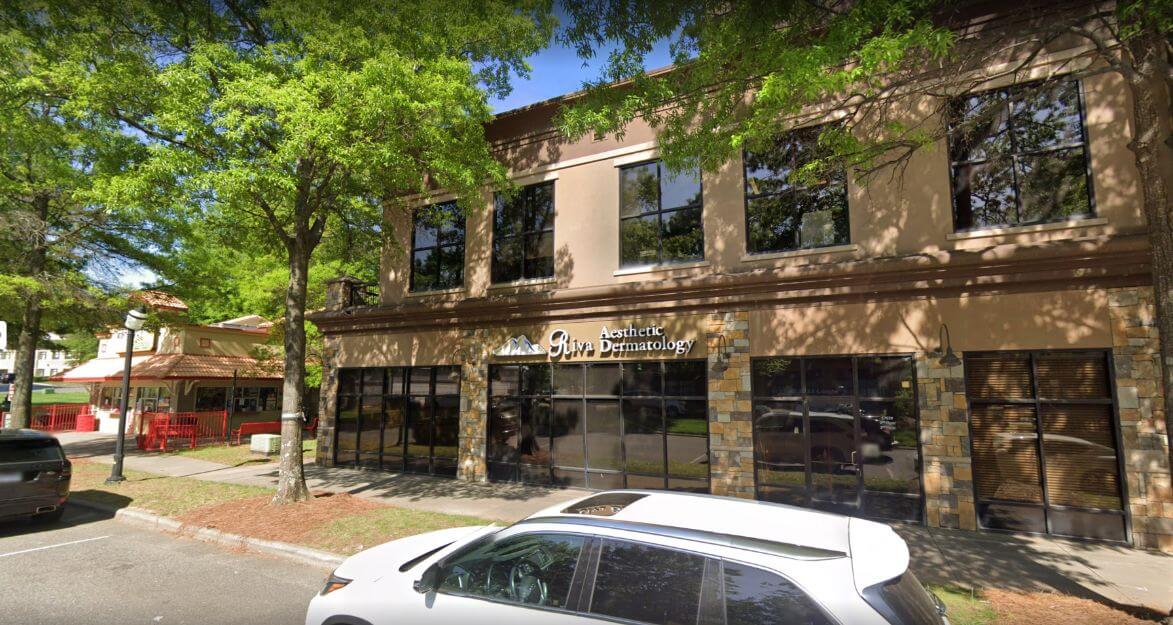Acne
Understanding Acne: Causes and Treatments at Riva Dermatology
Acne is a common skin condition that occurs when hair follicles become clogged with oil and dead skin cells. Worldwide, acne affects more than 650 million people - making it the most prevalent skin condition. It often causes whiteheads, blackheads, or pimples, and can appear on the face, forehead, chest, upper back, and shoulders. Acne is most prevalent among teenagers, though it affects people of all ages. Factors such as hormones, certain medications, diet, and stress can exacerbate acne.
At Riva Dermatology, we provide comprehensive acne treatment tailored to each patient’s unique needs. Our expert dermatologists use advanced techniques and personalized care to help patients achieve clear, healthy skin.
Effective Acne Treatments in the Lake Norman Area
Don’t let acne affect your confidence. Schedule a consultation with Riva Dermatology today and discover personalized acne treatments. Proudly serving Huntersville, Cornelius, Davidson, Mooresville, Denver, and surrounding communities.
Examples of Acne
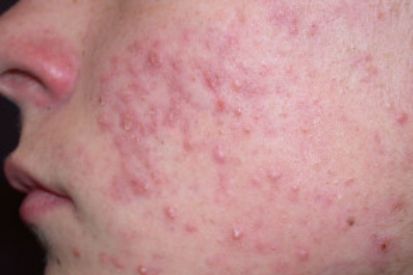
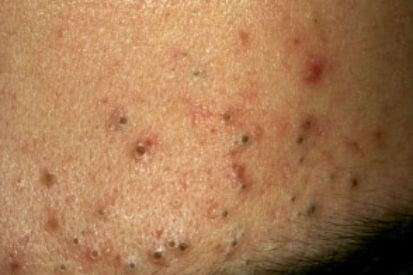
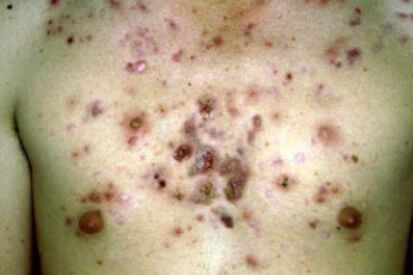
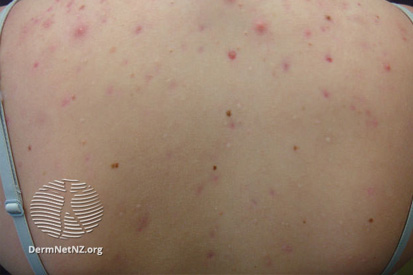
What are the Symptoms of Acne?
Before you can understand how to get rid of acne, it’s important to know the symptoms and how they may appear. Acne can range from mild blemishes to more severe, painful lesions, and it often affects not just the face but other areas of the body as well.
Common acne symptoms include:
- Pimples, blackheads, and whiteheads
- Red, inflamed bumps (papules)
- Pus-filled lesions (pustules)
- Large, firm nodules under the skin
- Painful cysts that may leave scars
- Breakouts on the face, neck, chest, back, shoulders, upper arms, or buttocks
What Causes Acne?
Acne develops when oil, dead skin cells, and bacteria build up in the pores, leading to inflammation and breakouts. Hormonal fluctuations are one of the most common triggers, especially during puberty, menstruation, and pregnancy, when hormone levels can increase oil production. Bacterial infection within clogged pores further aggravates the skin, creating redness, swelling, and sometimes painful lesions.
Other factors can exacerbate acne, including an unhealthy diet, certain medications, and stress. While stress doesn’t directly cause acne, it can trigger flare-ups and slow skin healing. Recognizing these influences is crucial for selecting the appropriate treatment and prevention plan.
- Hormonal Fluctuations: Hormonal changes, especially during puberty, menstruation, and pregnancy, can stimulate acne.
- Bacterial Infection: When hair follicles become clogged with excess oil and dead skin cells, bacteria multiply, triggering inflammation.
- Diet: Some studies suggest that certain foods may influence acne development.
- Medications: Certain medications can contribute to acne development.
- Stress: Stress doesn't directly cause acne, but it can exacerbate existing conditions.
How to Prevent Acne
Preventing acne starts with simple, consistent habits that support healthy skin. By following a daily routine and making mindful lifestyle choices, you can reduce breakouts and maintain clearer skin over time.
Key acne prevention strategies include:
- Cleansing your face twice daily with a gentle, non-comedogenic cleanser
- Moisturizing with an oil-free, non-comedogenic product
- Staying hydrated and maintaining a balanced diet
- Avoiding touching your face to reduce bacterial transfer
- Seeking personalized guidance from a dermatologist for persistent issues
Working with an expert at Pinnacle Dermatology can help you establish a foundation for lifelong skin health and create a routine tailored to your unique skin needs.
Acne FAQs
Acne is caused by clogged hair follicles due to excess oil, dead skin cells, and bacteria. Hormonal changes, certain medications, diet, and stress can also contribute to acne development.
Treatment options include topical creams, oral medications, chemical peels, laser therapy, and lifestyle changes. A dermatologist will tailor a treatment plan based on the severity and type of acne.
Yes, certain foods like dairy products and high-glycemic foods can exacerbate acne. A balanced diet with plenty of fruits, vegetables, and water may help improve skin health.
Preventive measures include maintaining a regular skincare routine, using non-comedogenic products, avoiding touching your face, and keeping hair and hats clean.
Popping pimples can lead to scarring and infection. It’s best to avoid popping pimples and seek professional treatment for acne management.
From our QualDerm Family of Brands: Acne Treatment Options
How to Treat Acne
Effective acne care isn’t one-size-fits-all. At Pinnacle Dermatology, our specialists create personalized plans that may include topical creams and gels, oral antibiotics, hormonal therapy, or retinoids for more severe cases. Each treatment is designed to reduce breakouts and target the underlying causes of acne.
Our dermatologists take the time to identify what’s driving your acne and build a treatment strategy that works for you. Whether you’re dealing with occasional flare-ups or chronic, severe acne, we’re here to help you achieve clearer, healthier skin. Schedule your appointment with Pinnacle Dermatology today and take the first step toward lasting results and renewed confidence.
Featured Products for Acne
Check your local office for current stock!
Check your local office for current stock!

